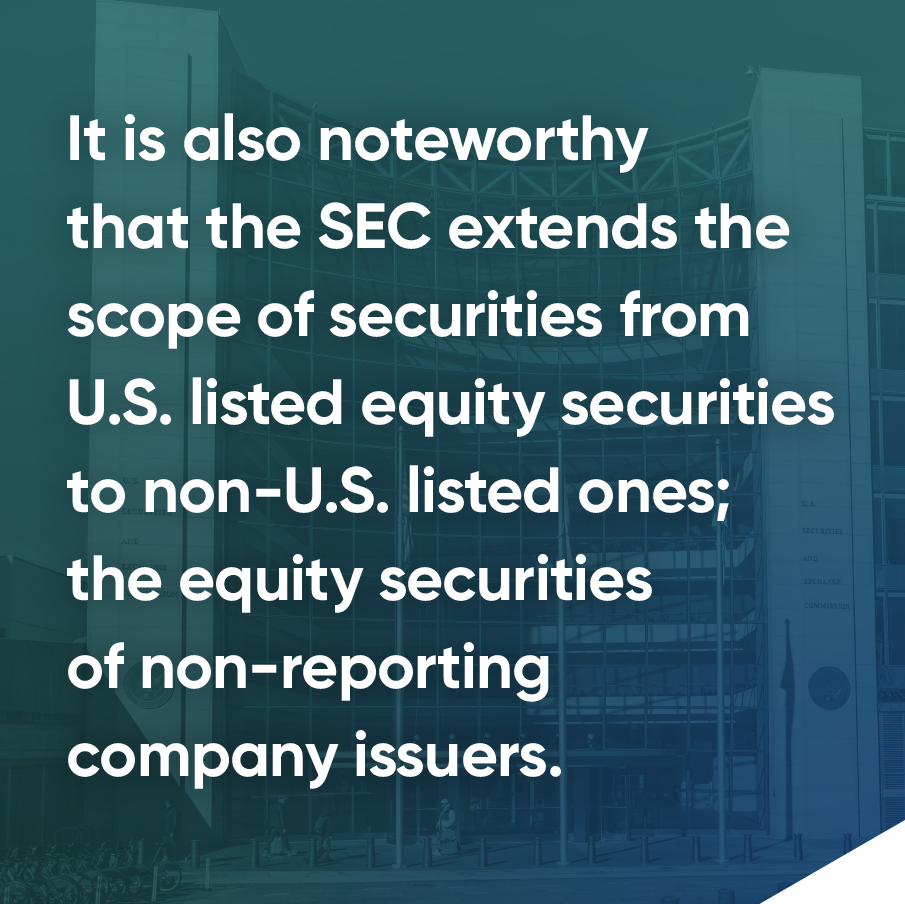Author:
Who is caught by the rule?
Institutional Managers are caught by this rule. Those institutional investment managers (‘the Managers’) that meet or exceed certain specified reporting thresholds must report certain short position data and short activity data for equity securities. For reporting, a new Form SHO was introduced. Managers will confidentially file and submit the form via EDGAR, and the submission deadline will be 14 calendar days after each calendar month. SEC will subsequently aggregate and publish certain data collected.
Reporting thresholds: reporting and non-reporting issuers
Different thresholds will apply to reporting and non-reporting company issuers. The filing thresholds will be as follows:
- For reporting issuers: a monthly average of daily gross short positions of at least (i) $10 million, or (ii) 2.5% of the issuer’s shares outstanding (at the close of regular trading hours);
- For non-reporting issuers: $500,000 or more at the close of regular trading hours on any settlement date during the calendar month.
What securities are included in 13f-2?
Rule 13f-2 covers the following types of securities that will be subject to short position disclosure: each class of exchange listed and over-the-counter (‘OTC’) securities, such as certain derivatives, options, warrants, other convertibles, and ETFs. It is also noteworthy that the SEC extends the scope of securities from U.S. listed equity securities to non-U.S. listed ones; the equity securities of non-reporting company issuers.

Compliance dates
The effective date for the new SEC rule will be January 2, 2024. However, the compliance dates for Rule 13f-2 and Form SHO will be January 2, 2025. Public aggregated reporting will follow 3 months later.
Coping with the regulatory challenges
Building new in-house solutions might be an option for Managers. An alternative option would be to rely on the services provided by RegTech platforms, like our Signal, which provides near real-time automated monitoring and reporting for more than 100 jurisdictions, including Short-Selling rules for the U.S. Given the complexity of the new Rule’s requirements, the unparalleled in-house regulatory expertise in Signal combined with the meticulous handling of data cannot be overemphasized as, in this way, the operational efficiency is optimized, and the risk reduced. The rather demanding preparation of the filings using an XML-based data language is entrusted to highly qualified professionals, thereby saving time and resources for the filers. Missed, incorrect and/or late filings can cost Managers a lot of money, but we can assist you in staying compliant and avoiding such significant fines imposed by the SEC.
Disclaimer: The information contained in this communication is for informational purposes only. The opinions expressed herein are those of the author and do not necessarily reflect those of Confluence. Confluence is not providing legal, financial, accounting, compliance, or other similar services or advice through this communication. Recipients of this communication are responsible for understanding the regulatory and legal requirements applicable to their business.
